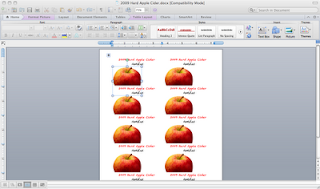On Tuesday I threw out a box of Cheese Nips because I believed I would eat to many of them. Having them in the house, being tempted by them, I knew I would eat them -- even though I did not want to. Was I out of control? Was I eating involuntarily? Is there no free will?
What is will and what is a mind anyway?

Although some metaphysical types disagree, I am convinces that my mind is in my brain, and the chemical reactions in the brain interact with the body to produce thought, muscle control, and volitional action.
This appealing Wikipedia article takes up the topic. This research field is pretty old,
about 25 years. It started with electrodes on different brain areas, rather than newer MRI based techniques.
Basically, researchers watched electrical polarizations in the brain in areas associated with motor control, and then were able to predict what subjects would do up to ten seconds before they acted.
And then they raised big-picture questions about the nature of volition and free-will.
In some of the early work, volunteers were asked to record when they felt the impulse to move, and that was compared with the polarization in the brain.
This work seems misinterpreted today because it is not clear how the volunteers reported the timing of their intent to move. This was tenths of a second after the electrical polarization of the brain, and pretty hard to make a big deal about. In other words, the self-reporting muddled the results.
Newer work with better instruments seem to show that thinking about an action can cause the brain to fire neurons as if it is acting. This muddles the interpretation of the 1980's era study. Secondly there seem to be multiple decision making centers in the brain that interact. Motor movement is initiated in the front of the brain (where the higher level thought is), and moves to the back.
In regard to free-will, some behaviors are involuntary like yawning, coughing, and more significantly Tourette's Syndrome tics. Most people can control these things within limits. Of course people with schizophrenia don't believe they are in control of their bodies.
If a drummer is trying to play a fast rhythm, the hands are controlled in a different way. Sometimes I wonder at how quickly my hands can type out a word that I am not quite sure that I can spell right.
People with "
alien arm syndrome" are a special case. Strange as it seems, MRI work on people with "alien arm syndrome" seems to show an atypical pattern of brain activation prior to movement. In this case, people don't feel like they are controlling the arm, although their brain really is controlling it. The portion of the brain responsible for the arm is not interacting well with the rest of the brain.
There are limits to the control we have over our bodies, and some decision-making is "sub-conscious." In "normal" people, large strategic activities are under our control, but the details are fuzzy, and how the brain works is less deterministic than it seems.
My brain uses some kind of committee process to decide when to eat Cheese Nips. Sometimes, when my more diet conscious-brain parts leave the room, the rest of my mental committee votes to eat Cheese Nips, or used to.
 In iTunes 10:
In iTunes 10:


















